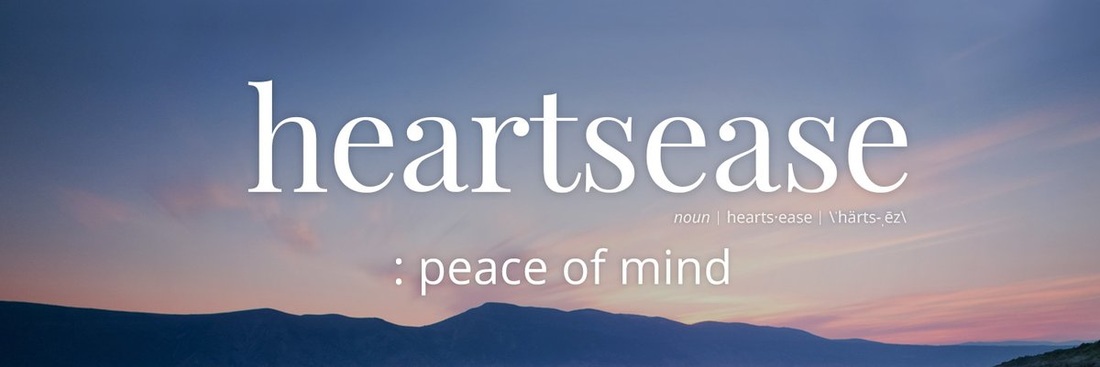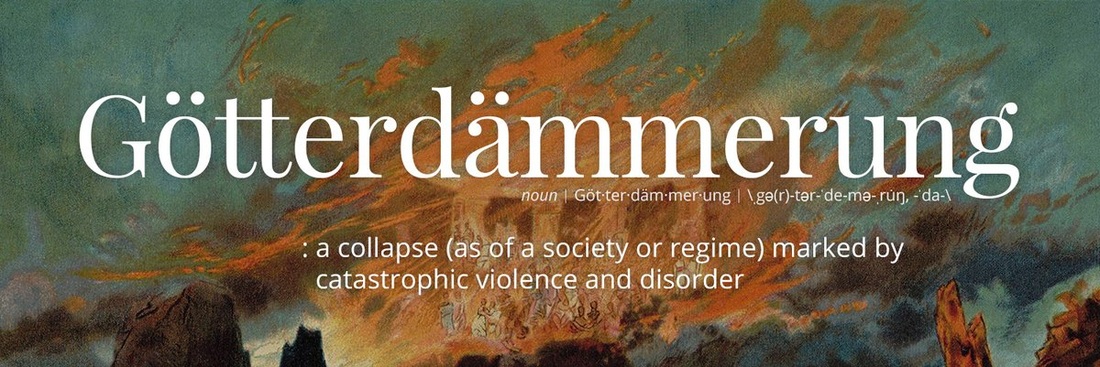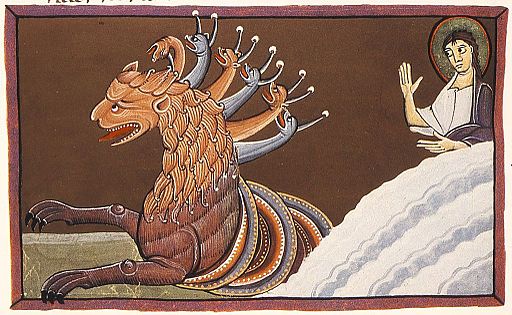\ə-ˈpä-kə-ˌlips\
The first clutch of real dread hit me on the day before the election, when Merriam-Webster’s Twitter account (which is a work of genius & you all should follow it) updated its header image
Old image:
That’s still the question. Calamity fills my news feed: innocents slaughtered, ice sheets collapsing, the vulnerable suffering, leaders gleefully sharpening their knives to carve up the safety net, civil rights, and civil liberties.
Is it any wonder that I have been thinking about apocalypse? *
Now by apocalypse I don’t mean the end of the world—I still hope it won’t come to that.** In fact, apocalypse did not necessarily mean doomsday until relatively recently. The word derives from the Greek ἀποκαλύπτειν (apokalyptein), meaning to uncover or disclose: quite literally to take off (apo) a cover (kalyptein). It’s the moment when the veil is lifted and a truth is revealed. ***
That truth is often a sear-your-eyeballs kind of thing. That’s what you get in John of Padmos’ visionary scripture, whose title was originally translated into English as Apocalypse and later re-translated as Revelation, which is what we still call it today.
Revelation certainly contains a fair bit of calamity. Rivers of blood, hailstones, dragons, massacres, lakes of fire. At the time it was written, the Romans had just destroyed Jerusalem and razed the Temple; the empire itself was wracked with divisions, and civil war was never far from the surface. The apocalyptic vision John described—bloodshed, destruction, war, famine, plague—wasn’t held in store, waiting to bring about the end some time in future. It had been there all along. Elaine Pagels says that as far as John was concerned, the world had already ended.
And that’s kind of where I’m at. The veil has been pulled aside, revealing the ugly that has always been there. The racism, and the misogyny, and the easy dehumanization. The greed and the frantic worship of power for its own sake. None of it is new; it's just been revealed to us yet again.
Now I am not planning on making the Word of the Week a space for partisan screeds or political agita. That’s not what this blog is about. In this forum I’ll be sticking with words and etymologies and riffs on my life and times. It’s fun and silly, and I need a place for fun and silliness. Maybe you do too.
But this doesn't mean that I am withdrawing from the political fray or closing my eyes and hoping that somehow all comes right in the end. Far from it. The veil has been lifted and for all the grief and outrage I can't escape that there is much to do.
So here is my note from the apocalypse. Keep the faith. Pay attention to what’s happening around you. Be wary of compromises that undermine your fundamental values. Organize.
If you want dispatches from the activist side of my life, including action steps, come visit my new blog, Eating the Whale.
** But of course there is no guarantee and any student of history can tell you how things can go very very bad, very very fast.
*** Kalyptein is an interesting case. It comes from the Proto-Indo-European *kel- (hidden) which is the same root that gave us “cell” and “hell”, as well as our modern prefix klepto- (to steal). (Yes there is an irony there, that our current apocalypse is connected with kleptocracy.)
Kalyptein also gives us Calypso, the nymph who kept Odysseus on her island for seven years, whose epithet means something like “the concealer” or “the subtle one who keeps things hidden.” The name of the Caribbean music, however, comes from another source entirely, though experts differ on exactly what that source is. The prevailing theory seems to be that this kind of calypso comes from “kaiso,” which in the language of the Efik people of Nigeria means “go on, keep going.”
**** Actual biblical scholars can probably tell me a million ways this interpretation is off base. But if I were trying to send messages to embattled fellow travelers in a time of uncertainty and crisis, this is pretty much what I’d say.




 RSS Feed
RSS Feed